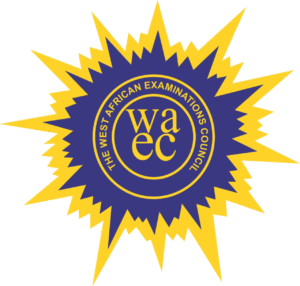UniMAC Prioritizes Practical Education, Says Prof. Yaw Gyau

The University of Media, Arts and Communication (UniMAC) has reiterated its dedication to strengthening practical journalism training as part of broader efforts to align media education with industry expectations. This assurance was given by Professor Yaw Gyau, Dean of the School of Public Relations, Marketing and Advertising, during a recent working visit to the Multimedia Group Limited in Accra.
Prof. Gyau acknowledged rising concerns from media professionals about the limited hands-on experience many journalism graduates possess. He noted that employers are increasingly demanding graduates who can confidently handle the day-to-day demands of newsroom work—a gap UniMAC is actively working to address.
“There is legitimate concern from industry players about the practical readiness of some graduates,” he said. “We take these observations seriously, and our response is action.”
As part of its strategy to bridge this gap, Prof. Gyau revealed that Block A of the old National Film and Television Institute (NAFTI) campus is being redeveloped into a state-of-the-art multimedia centre. The revamped facility will include broadcast studios, editing suites, and learning spaces designed to simulate real-world media environments.
“We are restoring what was lost,” Prof. Gyau explained. “Block A is being transformed into a multimedia centre with both academic and commercial functions. This centre will give students the hands-on training they need to be newsroom-ready.”
He emphasized that the initiative is not merely cosmetic but part of a broader structural shift within UniMAC to embed practical experience throughout the curriculum. “We are serious about giving students the practice they need—the practical dimension of media education that is essential for their future success,” he stressed.
Curriculum Reforms and Skills Development
Addressing the need for improved foundational skills, Prof. Gyau acknowledged that more focus is required in areas such as writing and basic newsroom operations. He urged the journalism faculty to continue refining its approach to ensure students gain strong writing abilities alongside technical competencies.
“In terms of writing and core journalism practices, we’re fully aware of the shortcomings,” he said. “That is something the journalism department must continuously work on.”
He also highlighted the efforts of the Dean of the Journalism Faculty, Professor Etse Sikanku, who is leading a comprehensive curriculum reform aimed at improving student exposure to research and fieldwork. These changes, Prof. Gyau noted, are designed to complement theoretical learning with direct industry engagement.
“We are confident that students currently enrolled will graduate with sharper skills and better preparedness,” he said. “With the reforms being implemented, they’ll gain a deeper research experience that will significantly boost their competitiveness in the job market.”
Strengthening Academia-Industry Collaboration
Prof. Gyau emphasized UniMAC’s commitment to enhancing partnerships between academia and the media industry. This collaboration, he said, is central to the university’s vision of producing competent, job-ready graduates who can contribute meaningfully to Ghana’s dynamic media landscape.
“Building bridges between what is taught in the classroom and what is expected in the field is our top priority,” he added. “We’re not just talking about change—we’re implementing it.”
UniMAC’s leadership believes that with continued investment in infrastructure, updated curricula, and stronger ties with media organizations, the university will remain a key driver of quality journalism education in Ghana.
Founded through the merger of Ghana’s foremost media and communication institutions, UniMAC has positioned itself as a centre of excellence for practical, value-driven education in journalism, communications, and the creative arts.





